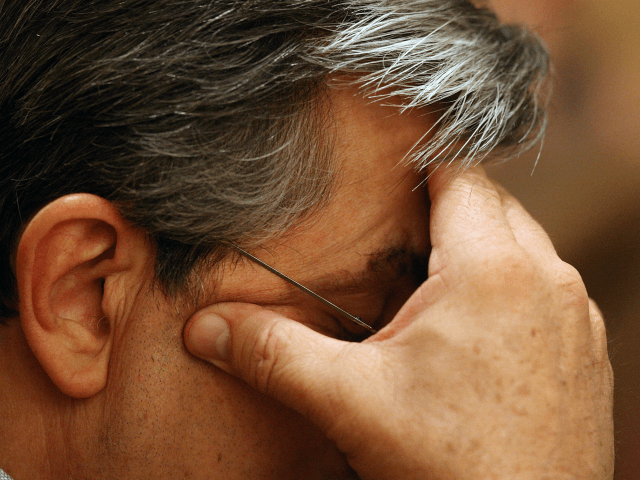The UK’s suicide rate has risen for the first time in five years, with men still three times more likely than women to take their own lives.
The country saw its first increase since 2013, with 6,507 suicides recorded in 2018 compared to the year before when 5,821 people took their own lives, a rise of 11.8 per cent.
There were 17.2 male deaths per 100,000, with three-quarters of all suicides being by males, a proportion the Office for National Statistics said had been the case since the mid-1990s.
As well as the general disproportionate rate of male suicides over female, the ONS noted a “significant increase” in the suicide rate of males aged 10 to 24 and men aged over 75.
The age range with the highest suicide rate was 45 to 49 for both men and women; however, male suicides were, as per the broad average, three times that of women in that age bracket at 27.1 male suicides versus 9.2 female suicides per 100,000.
While there had been a noted increase in male suicides, female suicides have remained consistent at 5.4 per 100,000 for the past decade. However, the statistics agency did find that the suicide rate amongst women aged under 25 grew to its highest recorded level, increasing 83 per cent since 2012.
Nick Stripe, Head of Health Analysis and Life Events at the ONS, said of the statistics: “We saw a significant increase in the rate of deaths registered as suicide last year which has changed a trend of continuous decline since 2013.
“While the exact reasons for this are unknown, the latest data show that this was largely driven by an increase among men who have continued to be most at risk of dying by suicide.
“In recent years, there have also been increases in the rate among young adults, with females under 25 reaching the highest rate on record for their age group.”
The reported “increases in the rate among young adults” follows other studies that have shown a general decline in the sense of happiness and life-worth amongst the young. Breitbart London reported in August that a poll conducted by Yakult found that 89 per cent of 16- to 29-year-olds in the UK believe that their lives have no purpose or meaning.
Another study by the Children’s Society published later that same month found that childhood happiness had fallen to its lowest level in a decade, with the charity saying that children were becoming increasingly unhappy with their friendships, a fundamental building block in communal relationships. A report released this week revealed that almost one-in-five bullied children have contemplated suicide.
It is not just the young who are experiencing increasing negativity about the state of their existence, with a 2017 survey revealing that three-quarters of older people feel lonely, prompting the British government to appoint a so-called Minister for Loneliness to direct state-funded programmes in an attempt to correct the care deficit in 21st-century British society.
If you or someone you know is going through a tough time, call the Samaritans on 116 123 (freephone).

COMMENTS
Please let us know if you're having issues with commenting.